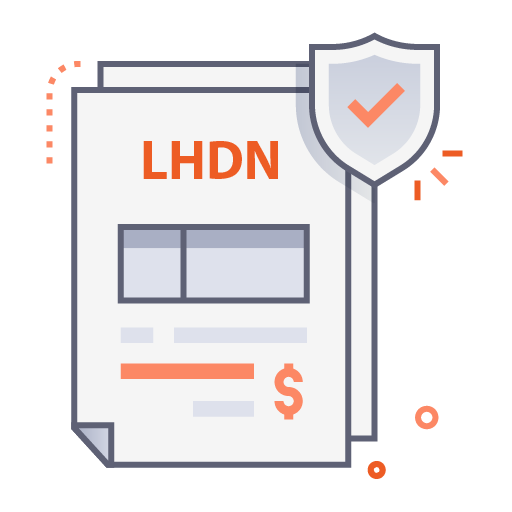Working around the landscape of taxation in Malaysia can quickly turn into a tricky task for both individuals and businesses. Understanding the various types of taxes, compliance requirements, and strategies for tax optimization is crucial for effective financial management. This guide aims to provide a comprehensive overview of the taxation services available in Malaysia, helping taxpayers to stay informed and compliant with the latest regulations.
The guide starts off with the types of taxes in Malaysia, covering several key areas in our guide. These include income tax, goods and services tax (GST) or sales and service tax (SST), property taxes, withholding tax, and stamp duty. Each type of tax has its own set of rules and rates, which can significantly impact the financial obligations of taxpayers. Understanding these differences is essential for accurate tax planning and compliance. As a quick reference, the progressive nature of personal income tax rates, ranging from 0% to 30%, requires careful consideration of income levels and potential deductions to optimize tax liabilities.
Following the discussion on types of taxes, the guide will take a closer look into tax compliance in Malaysia. This section will outline the necessary steps for registration with the Inland Revenue Board (LHDN), the process for filing tax returns, and the importance of maintaining proper financial records to avoid penalties during tax audits and investigations. Compliance is a critical aspect of taxation, ensuring that taxpayers meet their legal obligations and avoid any potential issues with the authorities. Additionally, understanding the deadlines for tax return submissions and the documentation required can help streamline the compliance process and reduce the risk of errors.
This guide will provide insights into optimization strategies and tax planning. Minimizing tax liabilities and improving cash flow for both individuals and businesses can be achieved through effective tax planning. This section will highlight various tax incentives, exemptions, capital allowances, and deductions available in Malaysia. Additionally, the benefits of hiring professional tax services to navigate the complexities of tax compliance and planning ensure that taxpayers can make informed decisions and maximize their financial outcomes. By leveraging expert advice, taxpayers can stay updated with the latest tax laws and regulations, ultimately achieving greater financial efficiency and security.
Key Takeaways
- Comprehensive Tax Framework: Administered by the Inland Revenue Board (LHDN), Malaysia’s tax system mandates compliance from both individuals and businesses, covering income tax, property tax, withholding tax, and stamp duty.
- Income Tax Essentials: Understand the scope of income tax in Malaysia, including tax residency rules, filing requirements, and audit procedures to ensure accurate and timely compliance.
- Shift from GST to SST: Malaysia’s transition to the Sales and Service Tax (SST) regime reshaped indirect taxation, affecting pricing, compliance obligations, and business operations.
- Tax Optimization Opportunities: Leverage available tax incentives, exemptions, capital allowances, and deductions to reduce liabilities and enhance business profitability.
- Strategic Tax Planning: Structuring your business effectively and applying sound tax strategies can significantly improve tax efficiency and financial performance.
- Professional Tax Services: Engaging expert taxation services ensures smooth navigation of complex regulations, optimized tax savings, and improved compliance management.

Understanding the Taxation System in Malaysia
Administration and Enforcement of Taxes by LHDN
The Inland Revenue Board of Malaysia (LHDN) is the primary agency responsible for administering and enforcing taxation policies in Malaysia. Operating under the Ministry of Finance, LHDN plays a crucial role in revenue collection, ensuring tax compliance, and supporting fiscal policy development to drive the nation’s economic growth. Its core mandate is to manage an efficient tax system while promoting voluntary compliance among taxpayers.
This includes formulating and implementing tax policies, administering various types of taxes such as income tax, corporate tax, petroleum tax, real property gains tax, and stamp duty, while conducting tax audits and investigations, and educating taxpayers about their rights and responsibilities under Malaysian tax laws. Additionally, LHDN collaborates with international tax authorities to enhance transparency and combat tax evasion, ensuring that Malaysia’s tax system aligns with global standards.
Mandatory Taxation for Businesses and Individuals
Taxation in Malaysia is mandatory for both businesses and individuals earning income within the country. The LHDN facilitates taxpayer registration and the issuance of Taxpayer Identification Numbers (TINs). To fulfill their tax obligations, registration with LHDN is required for both individuals and businesses. The agency provides a digital platform, e-Filing, enabling taxpayers to submit income tax returns, make tax payments, and access tax-related information and updates.
Compliance with tax reporting deadlines is critical, as late filings may result in penalties. LHDN also offers various tax reliefs and incentives to encourage compliance and support economic activities, such as deductions for education expenses, medical costs, and contributions to approved charitable organizations.
Importance of Malaysia’s Tax System
Understanding Malaysia’s tax system is crucial for businesses and individuals to remain compliant and optimize their tax liabilities. To exchange information and prevent tax violations, the LHDN collaborates with other government bodies and international organizations. Additionally, it conducts audits and investigations to detect tax evasion or fraud. Penalties for non-compliance include fines, additional tax assessments, and, in severe cases, legal action. The LHDN assists taxpayers by offering in-person assistance at Taxpayer Service Centers, providing online resources such as guides and FAQs, and conducting outreach programs to improve tax literacy and ensure taxpayers understand their obligations.
Furthermore, staying informed about changes in tax laws and regulations can help taxpayers take advantage of new reliefs and incentives, ultimately reducing their tax burden and contributing to a more robust financial planning strategy.
Uncovering the Tax Categories in Malaysia
Getting a Grasp of Income Tax in Malaysia
Income tax in Malaysia is a cornerstone of the country’s taxation system, impacting both individuals and businesses. The progressive tax rate for individuals ranges from 0% to 30%, depending on their annual income. This progressive structure ensures that higher income earners contribute a larger percentage of their earnings. Additionally, non-residents are taxed at a flat rate of 30% on their taxable income.
For businesses, the standard corporate income tax rate is set at 24%. However, small businesses with a paid-up capital of RM 2.5 million or less and a gross income not exceeding RM 50 million may benefit from lower rates. This differentiation aims to support smaller enterprises and promote economic growth. Companies are required to submit their corporate income tax returns within seven months of closing their accounts, ensuring timely compliance with tax obligations.
Key Takeaways:
- Progressive tax rates for individuals from 0% to 30%.
Non-residents are taxed at a flat rate of 30%.
The standard corporate tax rate is 24%.
Small businesses may benefit from lower tax rates.
Corporate tax returns must be submitted within seven months of closing accounts.
The Transition from GST to SST in Malaysia
Malaysia transitioned from the Goods and Services Tax (GST) to the Sales and Service Tax (SST) in 2018. The SST is a consumption tax applied to goods and services within the country. Sales tax is levied on manufacturers, importers, and producers of goods, while service tax is imposed on specific service providers, including restaurants and telecommunication services.
This shift was aimed at simplifying the tax system and reducing the burden on consumers. Businesses with annual sales exceeding RM 500,000 are required to register for SST, while those below this threshold may opt for voluntary registration. The SST framework includes various compliance measures to ensure accurate tax remittance and prevent evasion.
Key Takeaways:
- GST was replaced by SST in 2018.
- Sales tax applies to manufacturers, importers, and producers.
- Service tax applies to specific service providers.
- Mandatory SST registration for businesses with annual sales over RM 500,000.
- Compliance measures in place to ensure accurate tax remittance.
Insights into Property Taxes in Malaysia
In Malaysia, there are several types of property taxes, such as Real Property Gains Tax (RPGT) and quit rent. The size and location of the property determine the quit rent, a land tax imposed by state governments on property owners. RPGT is levied on the profit made from the sale of property, aiming to curb speculative activities in the real estate market.
The RPGT rates vary based on the holding period of the property, with higher rates for properties sold within a shorter duration after acquisition. For instance, properties sold within three years of acquisition are taxed at a higher rate compared to those held for a longer period. This tax structure is designed to stabilize the property market and discourage short-term speculation.
Key Takeaways:
- Quit rent is a land tax imposed by state governments.
- RPGT is a tax on profits from property sales.
- RPGT rates vary based on the holding period of the property.
- Higher RPGT rates for properties sold within a shorter duration.
Simplifying Withholding Tax in Malaysia
Withholding tax in Malaysia applies to payments made to non-residents for specific services, including royalties, technical fees, and interest. The payer must withhold a portion of the payment and remit it to the Inland Revenue Board of Malaysia (IRBM). This tax ensures that non-residents contribute to the Malaysian tax system for income earned within the country.
The withholding tax rates vary depending on the type of payment, with royalties typically taxed at 10% and technical fees at 10%. Payments must be remitted to the IRBM within one month of being credited to the non-resident payee. This system helps maintain tax compliance and ensures that the Malaysian government receives its due revenue from international transactions.
Key Takeaways:
- Withholding tax applies to payments to non-residents.
- Covers services such as royalties, technical fees, and interest.
- The payer withholds and remits the tax to the Inland Revenue Board.
- Withholding tax rates vary by payment type.
- Payments must be remitted within one month of being credited.
Stamp Duty on Documents in Malaysia
Various documents, such as property transactions, lease agreements, and loan agreements, are subject to stamp duty in Malaysia. The duty is assessed based on the value of the transaction and is payable by the person executing the document. This tax is crucial for legalizing documents and ensuring their enforceability in legal proceedings.
Different types of documents have specific rates applied to them for stamp duties, which are assessed and collected under the Stamp Act 1949. For instance, property transfer documents are subject to a higher stamp duty rate compared to lease agreements. The stamp duty must be paid within a specified period to avoid penalties, and the payment can be made online through the STAMPS portal, streamlining the process for taxpayers.
Key Takeaways:
- Stamp duty is levied on documents like property transactions and lease agreements.
- Assessed based on the transaction value.
- Ensures documents are legally enforceable.
- Governed by the Stamp Act 1949.
- Online payment available through the STAMPS portal.
Mandatory Tax Compliance and Regulations in Malaysia

1. Registering with the Inland Revenue Board (LHDN)

2. Submitting Annual Tax Returns

3. Verifying via Tax Audits and Investigations
Registering with the Inland Revenue Board (LHDN)
In Malaysia, registering with the Inland Revenue Board (LHDN) is a fundamental step for all taxpayers to ensure they are correctly assessed for tax purposes. This registration process is essential for both individuals and businesses. This requirement helps maintain a structured tax system, ensuring that all taxable entities are accounted for within the national tax framework.
The registration process involves submitting necessary documentation and information to the LHDN, which then assigns a tax reference number to the taxpayer. This number is used in all subsequent tax-related transactions and communications. Additionally, the registration process may require businesses to provide details about their operations, financial status, and other relevant information to ensure accurate tax assessment.
Key Takeaways:
- Mandatory registration with LHDN for accurate tax assessment.
- Ensures a structured and accountable tax system.
- A tax reference number is assigned upon registration.
- Businesses must provide detailed operational and financial information.
Submitting Annual Tax Returns
In Malaysia, taxpayers are required to file their annual tax returns within the stipulated deadlines to comply with tax regulations. For individual taxpayers, the filing period typically spans from March 1 to April 30 each year. Businesses, however, must adhere to deadlines that align with their specific financial year. The process of filing tax returns involves declaring all sources of income, claiming allowable deductions, and calculating the tax payable.
It is crucial to ensure that all information provided is accurate and complete to avoid any discrepancies that could lead to penalties. Additionally, taxpayers can file their returns electronically through the e-Filing system, which is a convenient and efficient method provided by the LHDN. The e-filing system also offers features such as pre-filled forms, real-time calculations, and instant submission receipts, making the process smoother and more user-friendly
Key Takeaways:
- Annual tax returns must be filed within designated deadlines.
- Individuals file between March 1 and April 30.
- Businesses follow deadlines based on their financial year.
- Accurate and complete information is crucial to avoid penalties.
- The e-filing system offers a convenient method for submission.
- The filing process includes pre-filled forms, real-time calculations, and instant receipts.
Verifying via Tax Audits and Investigations
The Inland Revenue Board (LHDN) conducts tax audits and investigations to verify that both businesses and individuals are accurately reporting their income and paying the correct amount of taxes. These audits are essential for maintaining the integrity of the tax system. During an audit, the LHDN may review financial records, receipts, and other documentation to ensure compliance with tax laws.
It is important for taxpayers to maintain proper financial records and documentation to facilitate the audit process and avoid penalties. In the event of discrepancies, the LHDN may impose fines or additional taxes. Therefore, regular and meticulous record-keeping is not only a legal requirement but also a best practice for financial management. Taxpayers should also be aware of the audit framework and guidelines provided by the LHDN, which outline the procedures and expectations during an audit.
Key Takeaways:
- LHDN conducts audits to ensure accurate income reporting and tax payment.
- Proper financial records and documentation are essential.
- Maintaining records helps avoid penalties and ensures compliance.
- Audits involve reviewing financial records and other documentation.
- Discrepancies can result in fines or additional taxes.
- Awareness of audit framework and guidelines is important.
4 Effective Tax Strategies and Optimization in Malaysia
Optimizing Tax Liabilities via Incentives and Exemptions
Malaysia offers a comprehensive array of tax incentives and exemptions designed to stimulate investment in key sectors such as manufacturing, information technology, and tourism. These incentives are governed by several legislative acts, including the Promotion of Investments Act 1986 and the Income Tax Act 1967. Businesses can benefit from Pioneer Status, which provides a five-year partial exemption from income tax, taxing only 30% of statutory income.
Additionally, the Investment Tax Allowance (ITA) offers a 60% deduction on qualifying capital expenditures, which can be offset against 70% of statutory income. These incentives aim to reduce taxable income and encourage investment in promoted activities and products, thereby fostering economic growth and development. Furthermore, the Reinvestment Allowance (RA) is available for companies that reinvest in expansion, modernization, or automation of their existing business, providing further tax relief.
Key Takeaways:
- Malaysia’s tax incentives aim to boost investment in key sectors.
- Pioneer status offers a five-year partial income tax exemption.
- Investment Tax Allowance provides significant deductions on capital expenditures.
- Reinvestment Allowance supports business expansion and modernization.
Leveraging Capital Allowances for Tax Relief
Capital allowances in Malaysia provide businesses with a method to recover the cost of fixed assets over time, functioning similarly to depreciation but specifically for tax purposes. Governed by the Income Tax Act, these allowances are available for assets such as machinery, equipment, and vehicles. Businesses can claim initial and annual allowances, which help reduce taxable income and improve cash flow.
The capital allowance system ensures that businesses can offset the wear and tear of their assets against their taxable income, providing significant tax relief. Notably, small-value assets not exceeding RM2,000 each are eligible for 100% capital allowances, capped at RM20,000 for small and medium enterprises (SMEs). Additionally, accelerated capital allowances are available for certain environmentally friendly equipment, promoting sustainable business practices.
Key Takeaways:
- Capital allowances help businesses recover the cost of fixed assets.
- Available for machinery, equipment, and vehicles.
- Small-value assets are eligible for 100% capital allowances, capped for SMEs.
- Accelerated capital allowances promote sustainable business practices.
Maximizing Tax Deductions for Individuals and Businesses
Tax deductions in Malaysia are available to both individuals and businesses, offering a way to lower taxable income through various allowable expenses. For individuals, common deductions include contributions to the Employees Provident Fund (EPF), insurance premiums, and education costs. Businesses can deduct expenses related to their operations, such as salaries, rent, and utilities.
These deductions are crucial for reducing overall tax liabilities and ensuring compliance with tax regulations. Additionally, special reliefs are available for taxpayers earning up to RM8,000 per month, providing further opportunities to minimize tax burdens. For businesses, deductions can also include research and development (R&D) expenditures, which are encouraged to foster innovation and competitiveness.
Key Takeaways:
- Tax deductions are available for both individuals and businesses.
- Common deductions include EPF contributions, insurance premiums, and education costs.
- Special reliefs are available for taxpayers earning up to RM8,000 per month.
- R&D expenditures are deductible, promoting innovation and competitiveness.
Strategic Business Structuring for Tax Efficiency
Tax liabilities are significantly impacted by the structure of a business. In Malaysia, different business structures such as sole proprietorships, partnerships, and private limited companies (Sdn Bhd) are subject to varying tax treatments. Sole proprietorships and partnerships are taxed on personal income rates, while private limited companies are subject to corporate tax rates. Choosing the right business structure can optimize tax liabilities and enhance overall tax efficiency.
It is advisable for businesses to seek professional advice to determine the most tax-effective structure. Additionally, understanding the distinction between resident and non-resident corporations is crucial, as it affects the scope of taxable income. Non-resident companies are taxed only on income derived from Malaysia, while resident companies are taxed on their worldwide income.
Key Takeaways:
- Business structure impacts tax liabilities.
- Different structures have varying tax treatments.
- Professional advice is recommended for optimal tax efficiency.
- Resident and non-resident corporations have different tax implications.
- Resident companies are taxed on worldwide income; non-resident companies on Malaysian income only.
Maneuvering Tax Season: The Essential Benefits of Taxation Services in Malaysia
Steering Clear of Tax Complexities with Professional Guidance
Taxation is inherently complex and often requires significant time and effort to manage effectively. Engaging a professional tax consultant or advisor can significantly ease this burden. These experts are well-versed in the latest tax laws and regulations, ensuring that businesses remain compliant with all legal requirements. Their expertise allows them to provide accurate and up-to-date advice, which is crucial for making informed financial decisions.
By leveraging their knowledge, businesses can avoid costly mistakes and penalties associated with non-compliance. Additionally, professional tax consultants can offer tailored advice specific to your industry and business structure, which can be invaluable in navigating unique tax challenges. They can also assist in understanding international tax laws if your business operates globally, ensuring compliance across different jurisdictions.
Key Takeaways:
- Professional tax consultants are knowledgeable about current tax laws and regulations.
- They provide accurate and timely advice to ensure compliance.
- Their expertise helps businesses avoid legal penalties.
- Tailored advice specific to industry and business structure.
- Assistance with international tax laws for global operations.
Enhancing Efficiency in Tax Management
Efficiency is another critical benefit of hiring a professional tax consultant. These professionals streamline the tax filing process, ensuring that all deadlines are met and returns are filed accurately. This not only saves time but also reduces the stress associated with tax season. By handling the intricate details of tax compliance, they allow business owners to focus on their core operations.
The efficiency brought by tax professionals can lead to smoother financial management and better overall business performance. Furthermore, they can assist in setting up efficient accounting systems and processes that enhance overall financial management and reporting. Their involvement can also lead to improved internal controls, reducing the risk of errors and fraud.
Key Takeaways:
- Tax professionals streamline the tax filing process.
- They ensure all deadlines are met and returns are accurate.
- Their services reduce stress and allow business owners to focus on core operations.
- Assistance in setting up efficient accounting systems and processes.
- Improved internal controls to reduce errors and fraud.
Maximizing Tax Savings and Minimizing Liabilities
One of the most significant advantages of hiring a professional tax advisor is the potential for tax savings. Through various legal strategies, these experts adeptly identify opportunities to minimize tax liabilities. They can uncover deductions, credits, and other tax-saving mechanisms that might be overlooked by someone without specialized knowledge. By optimizing tax strategies, businesses can retain more of their earnings and improve their financial health.
Proactive tax planning leads to significant long-term savings. Additionally, tax advisors can provide strategic advice on business decisions, such as mergers and acquisitions, to ensure tax efficiency and compliance. While adhering to legal requirements, they can also help structure transactions to maximize tax benefits.
Key Takeaways:
- Professional tax advisors identify opportunities to minimize tax liabilities.
- They uncover deductions and credits that might be missed otherwise.
- Optimized tax strategies lead to significant long-term savings.
- Strategic advice on business decisions for tax efficiency and compliance.
- Assistance in structuring transactions to maximize tax benefits.
Accomplish Full Tax Compliance and Maximize Tax Savings with Premia TNC Malaysia
Navigating the complex taxation landscape in Malaysia can be intimidating for both individuals and businesses. At Premia TNC, we understand the complicated nature of maintaining full tax compliance. Our expert team is dedicated to providing you with the necessary knowledge and support to ensure that you meet all regulatory requirements.
By leveraging our extensive experience and understanding of local tax laws, we help you avoid common pitfalls and stay compliant with the Malaysian tax authorities. Our goal is to make the process as seamless as possible, allowing you to focus on your core activities while we handle your tax compliance needs. Additionally, we offer continuous monitoring and updates on any changes in tax regulations, ensuring that you are always informed and prepared to adapt to new requirements.
Maximizing Tax Savings with Premia TNC Malaysia
At Premia TNC, we are committed to helping you maximize your tax savings through strategic planning and optimization. Our team of professionals works closely with you to identify opportunities for tax savings and implement effective strategies tailored to your specific needs. Whether you are an individual seeking to minimize your tax liability or a business looking to optimize your tax position, we provide personalized solutions that align with your financial goals.
By staying updated with the latest tax regulations and leveraging our expertise, we ensure that you benefit from all available tax incentives and deductions, ultimately enhancing your financial efficiency. Furthermore, we conduct thorough reviews of your financial activities to uncover potential tax-saving opportunities that may have been overlooked, ensuring that you receive the maximum benefits.
Expert Guidance for Individuals and Businesses
Whether you are an individual or a business, Premia TNC is here to guide you through every step of the taxation process in Malaysia. Our comprehensive taxation service in Malaysia covers everything from accurate tax filing to strategic tax planning. We understand that each client has unique needs, and we tailor our services to meet those requirements.
Our team is equipped with the knowledge and experience to handle various tax-related challenges, ensuring that you receive the best possible advice and support. By partnering with us, you can take control of your tax obligations and achieve peace of mind knowing that your taxes are managed efficiently and effectively. Additionally, we offer personalized consultations to address any specific concerns or questions you may have, providing clarity and confidence in your tax management.
Taking Control of Your Tax Obligations
At Premia TNC, we empower you to take control of your tax obligations and achieve significant tax savings. Our expert team is dedicated to providing you with the tools and knowledge needed to manage your taxes effectively. By offering comprehensive taxation services in Malaysia, we ensure that you are well-prepared to handle your tax responsibilities.
Whether you need assistance with tax filing, compliance, or optimization, we are here to support you every step of the way. Get in touch with our team today to start taking control of your tax obligations and enjoy the benefits of professional tax management. Moreover, we provide ongoing support and advice to help you stay ahead of any changes in tax laws, ensuring that your tax strategy remains effective and compliant.
Frequently Asked Questions
1. What are the current income tax rates in Malaysia?
The income tax rates for individuals in Malaysia increase with higher income levels, meaning they are structured progressively. The rates range from 0% for the lowest income brackets to 30% for the highest. This progressive system ensures that those with higher incomes contribute a larger percentage of their earnings in taxes. For businesses, the standard corporate tax rate is set at 24%. However, small and medium-sized enterprises (SMEs) may benefit from reduced rates, which are designed to support business growth and economic development. The specific rate applicable to an individual or business depends on their total taxable income and any applicable deductions or exemptions.
2. How can one register for tax purposes in Malaysia?
Registering for tax purposes in Malaysia involves obtaining a Tax Identification Number (TIN) from the Inland Revenue Board (LHDN). For individuals, this process typically requires submitting personal identification documents and proof of income. Businesses must provide additional documentation, such as the notice of registration and certificate of incorporation. The registration can be completed online through the MyTax portal, which offers a streamlined and efficient process. Additionally, businesses with an annual turnover exceeding the specified threshold must register for sales tax and service tax.
3. When are the deadlines for submitting tax returns in Malaysia?
The deadlines for submitting tax returns in Malaysia vary depending on whether the taxpayer is an individual or a business. For individuals, the annual income tax return must be filed between March 1 and April 30 each year. This period allows individuals ample time to gather necessary documents and complete their returns accurately. For businesses, the deadlines are determined by their financial year-end and can differ accordingly.
4. What are the main tax deductions that individuals in Malaysia can claim?
Individuals in Malaysia can take advantage of several tax deductions to reduce their taxable income. These deductions include contributions to the Employees Provident Fund (EPF), which is a mandatory retirement savings scheme. Additionally, premiums paid for life insurance policies and medical insurance can be deducted. Education expenses, such as tuition fees for higher education, are also eligible for deductions. Medical expenses for oneself, a spouse, or children, including costs for serious diseases and full medical checkups, can further reduce taxable income.
5. What is the Real Property Gains Tax (RPGT) in Malaysia, and how is it determined?
In Malaysia, the profit gained from the sale of real property is subject to the Real Property Gains Tax (RPGT). The rate of RPGT depends on the duration for which the property was held before being sold. For properties held for three years or less, the tax rate can be as high as 30%. This rate decreases progressively for properties held for longer periods, reflecting the government’s intention to curb speculative property investments. To calculate RPGT, you start by determining the chargeable gain. This is found by taking the difference between the acquisition price and the disposal price, then adjusting for allowable expenses and exemptions.
6. How do I report my income for tax purposes in Malaysia?
Declaring income for tax purposes in Malaysia requires individuals to submit their Income Tax Return Form (ITRF) annually. This form can be filed online through the MyTax portal, which provides a user-friendly interface for taxpayers. The process involves reporting all sources of income, including salaries, business profits, rental income, and investment returns. Accurate reporting is crucial to ensure compliance with tax regulations and avoid penalties. Taxpayers must also include details of any tax deductions and reliefs they are claiming.
7. What are the tax reliefs available to individuals in Malaysia?
Tax reliefs in Malaysia are designed to reduce the taxable income of individuals, thereby lowering their overall tax liability. These reliefs cover a wide range of expenses, including contributions to the Employees Provident Fund (EPF), life insurance premiums, medical insurance, and education fees. Additionally, taxpayers can claim relief for medical expenses incurred for serious diseases, full medical checkups, and expenses related to the care of disabled dependents. Donations to approved charitable organizations are also eligible for tax relief. Each relief has specific eligibility criteria and limits, and taxpayers must provide supporting documentation to claim these benefits.
8. What steps are involved in registering a company's tax file in Malaysia?
Registering a company’s tax file in Malaysia involves applying for a Tax Identification Number (TIN) through the e-Daftar application on the MyTax portal. When companies register online with the Companies Commission of Malaysia, they are automatically registered for a TIN as part of the incorporation process. The required documents include the notice of registration, certificate of incorporation, and details of directors and managers. This registration process ensures that companies comply with Malaysian tax laws and are able to report their income and expenses accurately. Additionally, companies must register for sales tax and service tax if their annual turnover exceeds the specified threshold.
9. What are the penalties for late tax filing in Malaysia?
Late tax filing in Malaysia can result in significant penalties imposed by the Inland Revenue Board (LHDN). These penalties may include fines, interest charges on the outstanding tax amount, and potential legal action. The fines are calculated based on the amount of tax due and the duration of the delay. Until the tax is fully paid, daily interest charges will continue to accumulate. It is crucial for taxpayers to file their returns on time to avoid these penalties. The LHDN provides reminders and resources to help taxpayers meet their deadlines and comply with tax regulations.
10. How is the Real Property Gains Tax (RPGT) calculated for different holding periods?
Certain exemptions are available under the Real Property Gains Tax (RPGT) in Malaysia, which can reduce the taxable gain and lower the overall tax liability for property disposals. Exemptions include properties inherited from deceased estates, disposals deemed to be equal to the acquisition price, and specific transactions involving family members. Additionally, exemptions may apply to properties held for longer periods, reflecting the government’s intention to encourage long-term investments.
11. What are the benefits of claiming tax relief in Malaysia?
12. What are the consequences of not registering for taxes in Malaysia?
13. What exemptions are available under the Real Property Gains Tax (RPGT)?
Related Posts





